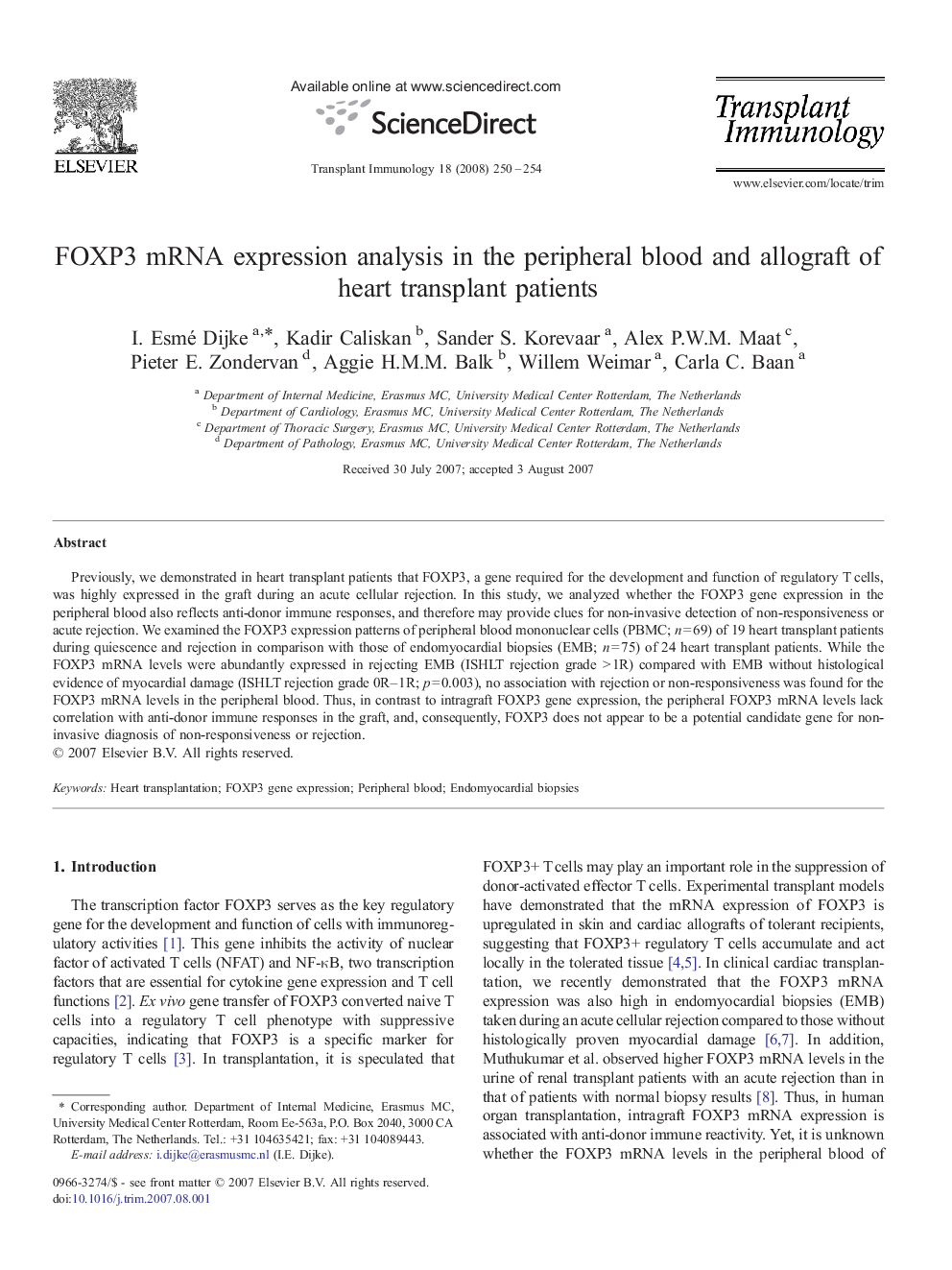| Article ID | Journal | Published Year | Pages | File Type |
|---|---|---|---|---|
| 3392409 | Transplant Immunology | 2008 | 5 Pages |
Previously, we demonstrated in heart transplant patients that FOXP3, a gene required for the development and function of regulatory T cells, was highly expressed in the graft during an acute cellular rejection. In this study, we analyzed whether the FOXP3 gene expression in the peripheral blood also reflects anti-donor immune responses, and therefore may provide clues for non-invasive detection of non-responsiveness or acute rejection. We examined the FOXP3 expression patterns of peripheral blood mononuclear cells (PBMC; n = 69) of 19 heart transplant patients during quiescence and rejection in comparison with those of endomyocardial biopsies (EMB; n = 75) of 24 heart transplant patients. While the FOXP3 mRNA levels were abundantly expressed in rejecting EMB (ISHLT rejection grade > 1R) compared with EMB without histological evidence of myocardial damage (ISHLT rejection grade 0R–1R; p = 0.003), no association with rejection or non-responsiveness was found for the FOXP3 mRNA levels in the peripheral blood. Thus, in contrast to intragraft FOXP3 gene expression, the peripheral FOXP3 mRNA levels lack correlation with anti-donor immune responses in the graft, and, consequently, FOXP3 does not appear to be a potential candidate gene for non-invasive diagnosis of non-responsiveness or rejection.
